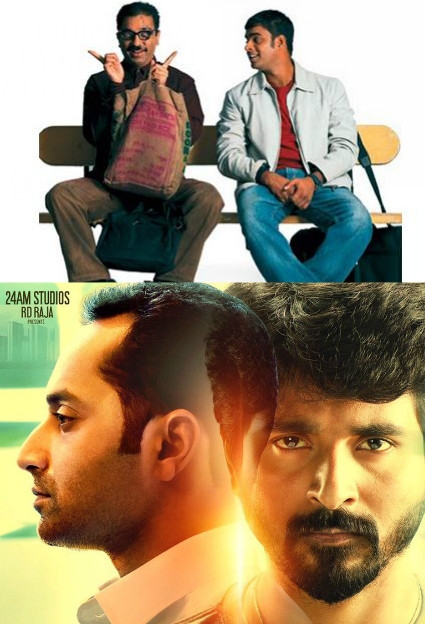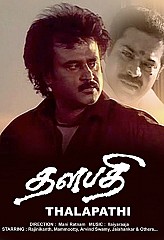

“Advertising has us chasing cars and clothes, working jobs we hate so we can buy shit we don’t need. We’re the middle children of history, man. No purpose or place,” says Tyler Durden (Brad Pitt) in the 1999 movie Fight Club. With this long soliloquy about consumerism and modern life, the protagonist Tyler, founder of a secret underground cult fight club, addresses the new members of the club. In 2015, the central characters of the Tamil movie Kaaka Muttai, two slum kids in Chennai, whose desire to taste a pizza constitutes the plot, try to sell stray dogs for a pug’s price. But, their desperate attempts without realizing the consumerist norms of fixing prices end up in disgrace.
Even though they are 16 years apart, filmmakers David Fincher (Fight Club) and M Manikandan (Kaaka Muttai) delve into the same realm of consumerism and its impacts on our daily life. This trend of filmmakers addressing the omnipresent, ever-imposing forces of consumerism started in the United States - known for being a mecca of consumerism - as early as in the 90s. It is interesting to see that in Indian regional cinema, Tamil filmmakers have a unique way of dealing with consumerism and its ramifications. The first major sign of this trend can be seen on Anbarasu, played by Madhavan, a restless and arrogant ad filmmaker in the 2003 movie Anbe Sivam, directed by Sundar C.
Plotting against the communist, humanist and anti-consumerist persona of Kamal Haasan’s Nallasivam, Anbarasu’s allegiances to capitalism, globalization and consumerism, and his delusions of a false identity, are rigorously tested throughout the movie. When director Ram introduced the character Prabhakar, played by Jiiva, in his 2007 directorial debut Kattradhu Thamizh, the market forces were mature enough to mould the identity of an individual according to his purchasing power. Prabhakar, being a Tamil postgraduate, struggles to find his place and true identity in a world full of people who compete with each other and mercilessly neglect everything outside their interests.
Director AR Murugadoss joined the bandwagon with his 2014 Vijay starrer, Kaththi. The movie tells the story of the doppelgangers, Kathiresan and Jeevanantham, both played by Vijay, who set off a full-fledged war against a corporate giant after a vicious encroachment plan of the company triggers a number of farmer suicides. In 2015, director M Manikandan turned up with one of the finest takes in India cinema on the plight of individuals in a post-globalized metropolitan society. The director, using the two slum kids and their realistic experiences of a hostile urban life, weighs what it means to be humane in a consumerist society.
The 2017 flick Aruvi, directed by Arun Prabhu, takes on this consumerist mindset even harder. The movie depicts the extent to which consumerism and commodification infiltrate people’s lives, by depicting a predatory television reality show that sells intense and personal emotions to the drawing room consumers. In the recently released Sivakarthikeyan flick Velaikkaran directed by Mohan Raja, the protagonist Arivu unleashes a guerilla warfare, ironically using the same lessons taught by his marketing guru, against his employer, an FMCG giant. It is an intriguing fact that the number of movies discussing (and taking a firm stand) in such issues is on the rise in Tamil cinema.
Most of them are concerned about issues caused by consumerism on the lower, middle and upper sub-layers of the broad middle class. Various surveys suggest that around two-thirds of the total revenue generated by the Indian consumer market is contributed by the middle class. They are the most vulnerable class when it comes to market fluctuations, economic meltdowns and other economy-related uncertainties, and hence live under a permanent cloud of insecurity. In order to address these insecurities, desires, and fears, movies like Kaththi and Velaikkaran introduce a solution bearing saviour figure, who can raise a finger against the corporate-political-bureaucratic alliance.
Moreover, and ironical enough, these movies are consumer products in a broader sense; the majority of the movie consumers is the urban middle class. Even though this can be criticized as escapism, the initiative taken by these filmmakers deserves a special mention. It is indeed brave to back such a wave of angst and protest against the inhuman face of consumerism since such films are not majorly visible in other regional cinemas, and that it is not mandatory that they will make box office sweeps. These filmmakers still risk their viewer base, careers and the reach of their movies to put forward serious issues concerning humanity.
This exemplifies the fact that a filmmaker can come up with a movie lashing out at the inhuman face of consumerism while making it a consumer product for the viewer/consumer. The narrow thread on which the filmmaker walks determines how the movie fares at the box office and in the people’s conscience. In David Fincher’s Fight Club, Tyler Durden continues his monologue like this: “We have no Great War. No Great Depression. Our Great War’s a spiritual war. Our Great Depression is our lives. We’ve all been raised on television to believe that one day we’d all be millionaires, and movie gods, and rock stars. But we won’t. And we’re slowly learning that fact. And we’re very, very pissed off.”
Behindwoods is not responsible for the views of columnists.




